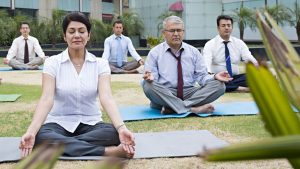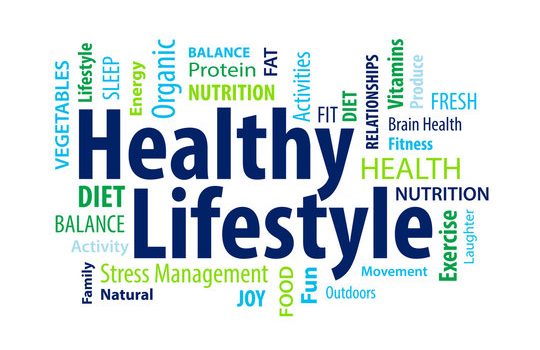
Introduction
Imagine a day when you feel happy, relaxed, and ready to take on the world. Self-Care is the Art of taking care of yourself. It means doing things that help keep your mental health strong. In today’s busy world, a fast-paced lifestyle can make you feel tired and stressed. But you can learn simple ways to balance work, fun, and rest. This guide will show you easy strategies to practice self-care. It uses clear words and short sentences that even kids can understand. Get ready to discover how a few mindful habits can brighten your day and help you stay healthy.
What is Self-Care?
Self-care means looking after your body, mind, and emotions. It involves taking time for activities that make you feel good. These activities might include reading, playing outside, or simply resting when you need to. Self-care is not selfish; it is important for keeping your mental health in balance. When you practice self-care, you give yourself permission to relax and recharge. This approach makes it easier to handle a fast-paced lifestyle. It helps you feel better and more focused throughout your day.
What is Mental Health?

Mental health is all about how we feel inside. It is the state of our thoughts, emotions, and overall well-being. Good mental health means you can enjoy life, cope with stress, and work well with others. When mental health is strong, you are more likely to have positive thoughts and feel motivated. It is important to care for your mental health just like you care for your body. Taking steps like getting enough sleep, talking about your feelings, and practicing self-care can improve your mental health. This leads to a happier and healthier life.
What is a Fast-Paced Lifestyle?

A fast-paced lifestyle is one where everything happens quickly. Many people work hard, study, and juggle many activities every day. This busy way of living can be exciting but also tiring. A fast-paced lifestyle sometimes makes it hard to find time for rest and self-care. When life moves quickly, it is easy to forget to take care of your mental health. Learning to slow down and give yourself a break is a key part of self-care. By balancing a fast-paced lifestyle with mindful habits, you can stay energetic and calm.
The Benefits of Practicing Self-Care

Practicing self-care offers many benefits. It can lower stress, improve your mood, and boost your energy levels. When you take time to care for yourself, you build resilience. This means you can handle challenges better. Self-care also helps you sleep better, eat healthier, and feel more focused at school or work. With regular self-care, you create a positive cycle where good habits lead to better mental health and an easier time dealing with a fast-paced lifestyle. The result is a happier, healthier you who can enjoy life to the fullest.
How to Create a Self-Care Routine

Creating a self-care routine is simple. Start by setting aside a few minutes each day for activities that help you relax. You might begin your morning with a short meditation or a few deep breaths. Later, take time to read your favorite book or listen to music that makes you smile. Even a five-minute break between classes or tasks can help. The key is to do something that makes you feel calm and refreshed. Over time, these small habits will add up to a strong self-care routine that supports your mental health and helps you manage a fast-paced lifestyle.
Table: Comparison of Traditional Self-Care Practices vs. Modern Self-Care Strategies
| Aspect | Traditional Self-Care Practices | Modern Self-Care Strategies |
|---|---|---|
| Activities | Meditation, reading, outdoor play | Mindfulness apps, online yoga, digital detox |
| Focus | Natural relaxation, family time | Technology-aided stress relief, social media breaks |
| Tools | Books, nature, conversation | Smartphone apps, online communities, wearable devices |
| Accessibility | Simple, low-cost, community-based | Convenient, time-saving, adaptable to busy lifestyles |
| Impact on Mental Health | Reduces stress, builds emotional resilience | Enhances focus, provides instant relaxation, improves sleep |
This table shows how traditional self-care practices and modern self-care strategies work together. Both approaches help improve your mental health and balance a fast-paced lifestyle.
Tips for Practicing Self-Care

To make self-care a part of your life, try these simple tips. First, create a daily schedule that includes a few minutes just for you. Set an alarm to remind you to take a break. Second, choose activities that you enjoy, such as drawing, playing outside, or listening to music. Third, talk to your family and friends about how you feel. Sharing your thoughts can help you feel better. Fourth, limit your screen time to avoid stress from too much online activity. Finally, keep a journal to write down your thoughts and progress. These tips are easy to follow and can make a big difference in your well-being.
The Role of Mindfulness in Self-Care

Mindfulness is a powerful tool in self-care. It means paying full attention to what you are doing and feeling. Practicing mindfulness can help you calm your mind and reduce stress. It is as simple as taking a few deep breaths or focusing on the sounds around you. When you practice mindfulness, you become more aware of your thoughts and emotions. This awareness helps you make better choices for your mental health. Mindfulness is a key part of creating a balanced routine that fits into a busy lifestyle.
How Self-Care Supports a Fast-Paced Lifestyle

A fast-paced lifestyle can be overwhelming. When you are always busy, it is easy to forget about your own needs. Self-care helps you slow down and recharge. By taking regular breaks, you can prevent burnout and keep your mind clear. Self-care also boosts your energy and makes you more productive. Even simple actions, like a short walk or a quiet moment, can make a big difference. When you take care of yourself, you can handle challenges better and enjoy life more fully. This balance is essential for maintaining good mental health.
Conclusion
Self-care helps balance mental health with a fast-paced lifestyle by offering simple, practical ways to Relax and Recharge. Embrace small daily habits to improve your well-being and build a happier, healthier future.










